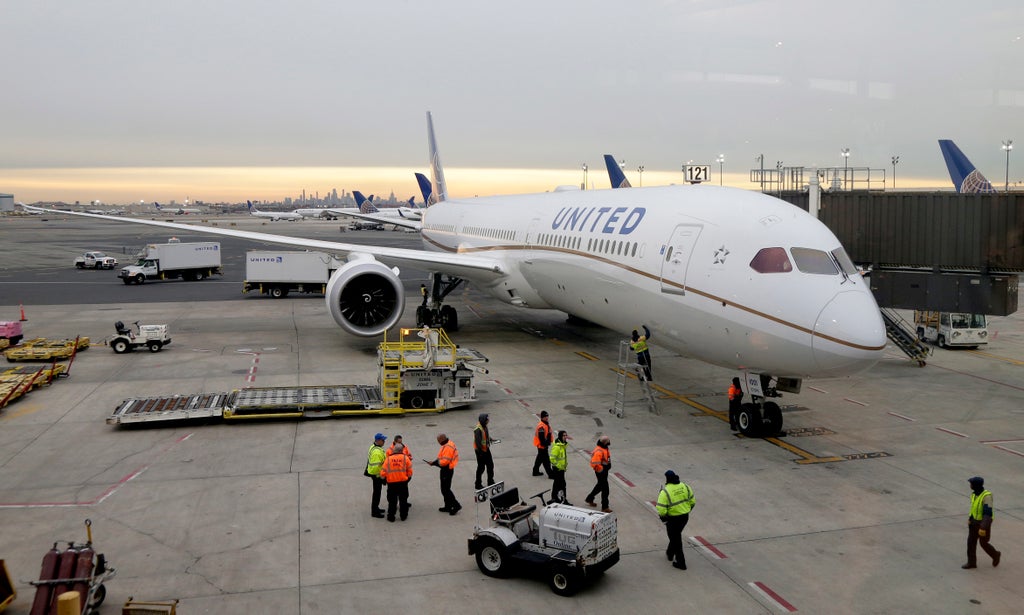
The airline industry is raising the stakes in a showdown with AT&T and Verizon over plans to launch new 5G wireless service this week, warning that thousands of flights could be grounded or delayed if the rollout takes place near major airports.
CEOs of the nation’s largest airlines say that interference from the wireless service on a key instrument on planes is worse than they originally thought.
“To be blunt, the nation’s commerce will grind to a halt” unless the service is blocked near major airports, the CEOs said in a letter Monday to federal officials including Transportation Secretary Pete Buttigieg who has previously taken the airlines’ side in the matter.
AT&T and Verizon plan to activate their new 5G wireless service Wednesday after two previous delays from the original plan for an early December rollout.
The new high-speed 5G service uses a segment of the radio spectrum that is close to that used by altimeters, which are devices that measure the height of aircraft above the ground.
Two weeks ago, the companies struck a deal with the Federal Aviation Administration to delay the service for two more weeks and reduce the power of 5G transmitters near airports. That delay ends Wednesday.
AT&T and Verizon say their equipment will not interfere with aircraft electronics, and that the technology is being safely used in many other countries. Critics of the airline industry say the carriers had several years to upgrade altimeters that might be subject to interference from 5G.
The CEOs of 10 passenger and cargo airlines including American, Delta, United and Southwest said 5G will be more disruptive than they originally thought because dozens of large airports that were to have buffer zones to prevent 5G interference with aircraft will still be subject to flight restrictions announced last week by the FAA, and because those restrictions won’t be limited to times when visibility is poor.
“Unless our major hubs are cleared to fly, the vast majority of the traveling and shipping public will essentially be grounded. This means that on a day like yesterday, more than 1,100 flights and 100,000 passengers would be subjected to cancellations, diversions or delays,” the CEOs said.







